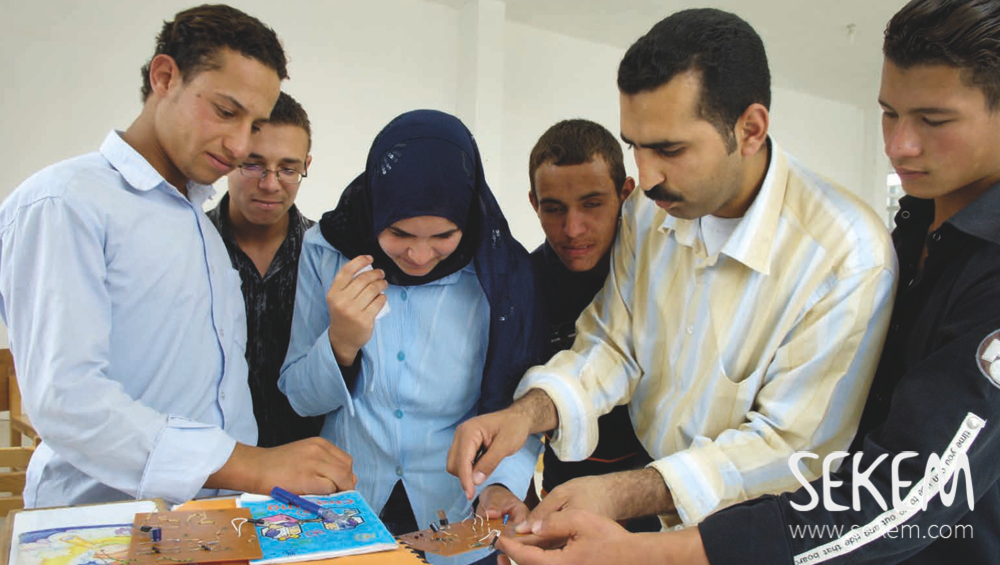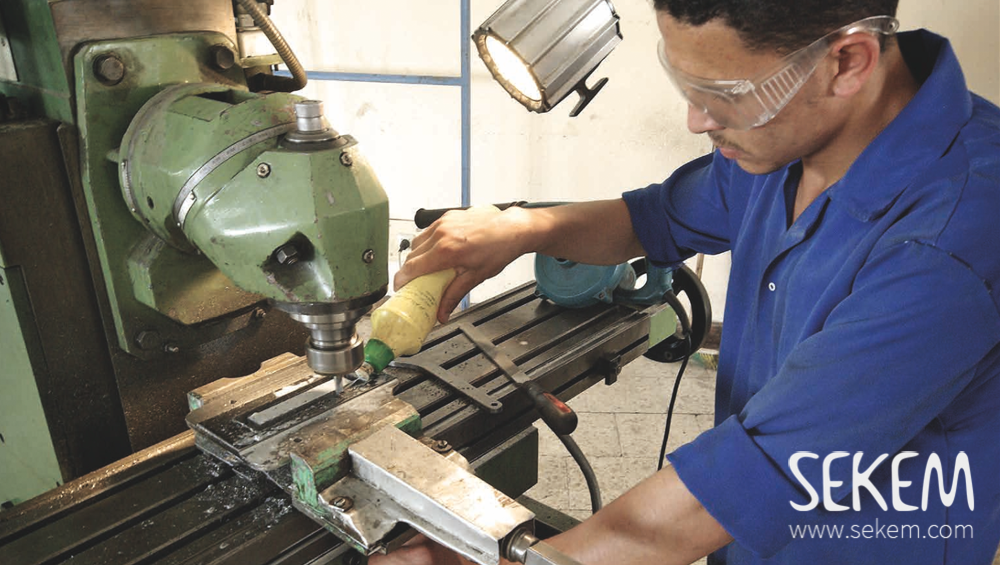20 years ago, SEKEMs Vocational Training Centre could be founded thanks to a donation by the City of Biberach in Germany. Dr. Hans Werner, who assisted the initiative, recounts its beginnings.
Egypt does not boast governmental or privately run vocational colleges. The only exception are those that are founded in the framework of a successful Egyptian-German partnership that has been in existence for many years. SEKEMs own Vocational Training Centre (VTC), that is a part of this group of advanced colleges, could only have been realized with the support of the City of Biberach in Germany when it was inaugurated more than a decade ago. In the context of a recent programme of lectures at the community college of this Southern German city, there has also been a presentation about SEKEM and its unique approach to a “development of the desert”. The lecture was given by Dr. Hans Werner, who was, together with his wife Elfriede, one of the key individuals who contributed to the creation of SEKEM in the late 1970s. At Biberach on 23 January, Dr. Werner spoke to a large number of people not only about how SEKEM originally came to be and the challenges of the current situation in Egypt. He also delved deeper into the specific support that SEKEM had received from Biberach during the formation of the institution.
A Close Relationship of a City and a Country
Dr. Hans Werner himself had grown up in Biberach and, many years later, had met the mayor of the city, Claus-Wilhelm Hoffmann, by chance. Back then, the former politician who today serves on the board of the German SEKEM support association, himself inaugurated a development fund that enabled the citizens of Biberach to receive sponsorships for their own development projects. Thus, the town‘s council went on to decide to support the construction of a vocational training centre in Egypt to the amount of 120.000 DM. Since the SEKEM farm is surrounded by 13 villages whose inhabitants mostly live close to the poverty line, the city’s council did not see any obstacles to pledging their support. The centre was opened in 1997 and in 1999 it was officially recognized by the Egyptian state. Some time later, it joined the 40 schools of the group of German-Egyptian vocational training centres in Egypt.
Since then, adolescents of both sexes can study a number of courses at the centre and acquire degrees in electrical engineering, carpentry, tailoring, mechanics, accounting, plumbing, and agricultural engineering. Currently, about 240 trainees are attending three-year apprenticeship courses. More than 750 young people have completed courses since the foundation of the centre and were thus able to acquire professional skills that many of them could later put to good use in SEKEMs own companies.

Individuals wishing to attend the vocational school must first have completed the 9th grade, have passed an entry exam, and then have convinced a group of selected trainers in terms of motivation and commitment in a personal interview. Three times a week, the SEKEM trainees then attend school for eight hours receiving instruction in basic subjects such as English, Arabic, and religious studies. The remaining four days are filled with courses focusing on practical training in the school’s workshops and in selected SEKEM companies. 25 experienced Egyptian teachers are supervising the students.
In fact, all teaching staff receive ongoing professional training themselves at regular intervals, for instance in English, art and pedagogy. In addition, experienced craftsmen and teachers from Europe arrive at SEKEM each year for several months and support teachers in their work and training. For instance, SEKEMs carpentry workshop could recently be upgraded thanks to the material support of a Swiss master carpenter. The German Society for International Cooperation (GIZ) also supported SEKEM in the implementation of a welding workshop, and in 2015 agricultural training will receive another expansion due to a grant by the Foundation for Development Cooperation (SEZ) in Baden-Württemberg (Germany).
The vocational school in SEKEM is an entity that is constantly in need of financial support. “Although the SEKEM companies can help a great deal, we are always grateful for the financial support provided by individual donors through one of the SEKEM support associations. However, we also always welcome individuals willing to put their experience to good use by assisting us in person in the development of the school”, Hans Werner said.
Education for Sustainability
During his expansive presentation at Biberach, Hans Werner expressly thanked the municipality for the generous donation it granted 20 years ago. Still today it is of vital importance that young people are trained to become competent craftsmen, not least because of the growing number of adolescents in the country. SEKEM also strives to contribute to the sustainable development of the Egyptian society also through education. “We thank the City of Biberach but also all those who have helped so many young people discover their potentials and acquire useful professional skills”, Werner added. “Still, we welcome all additional financial support that arrives to the benefit of the Vocational Training Centre at SEKEM.”
Christine Arlt, with material by Dr. Hans Werner

